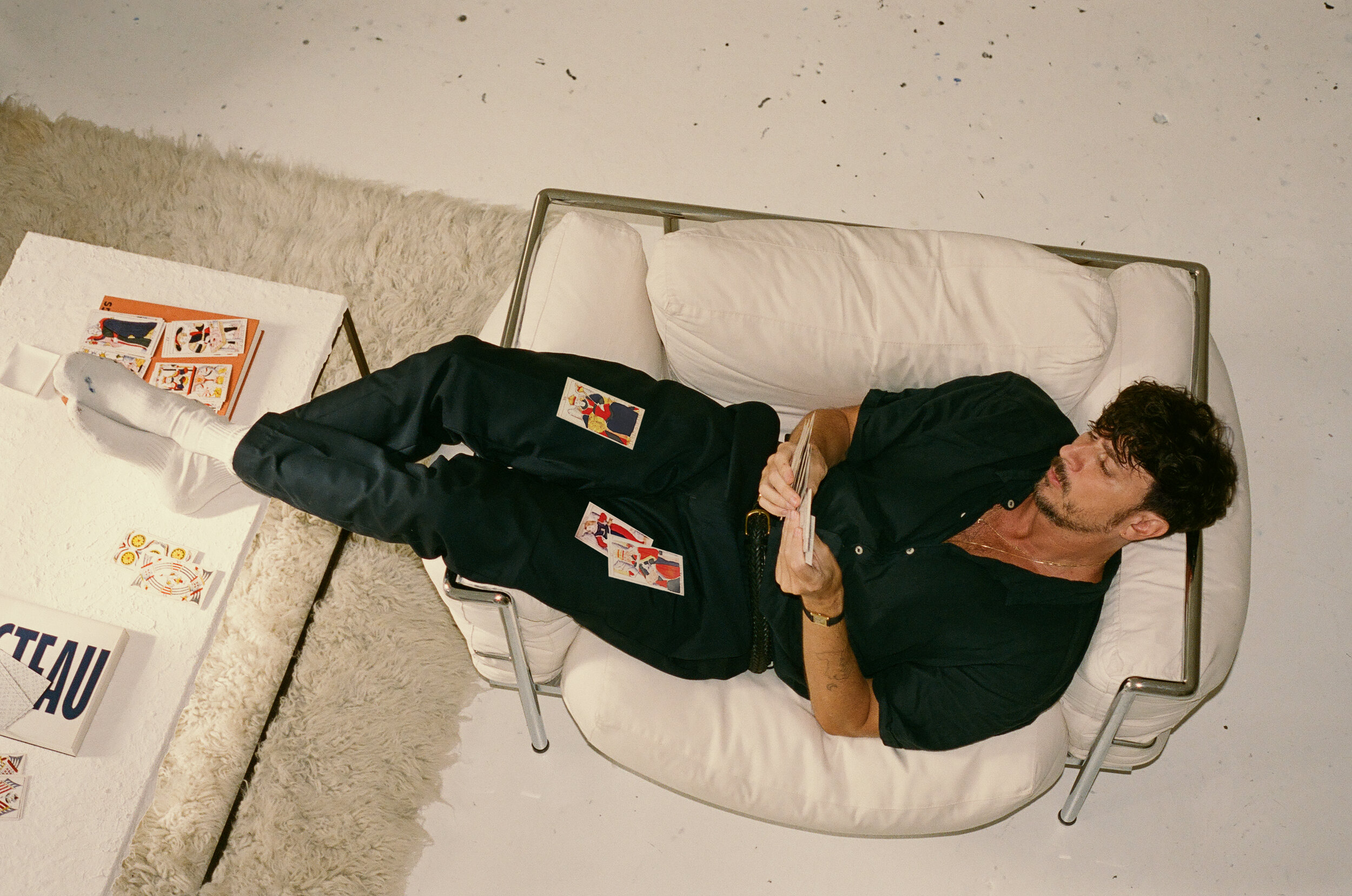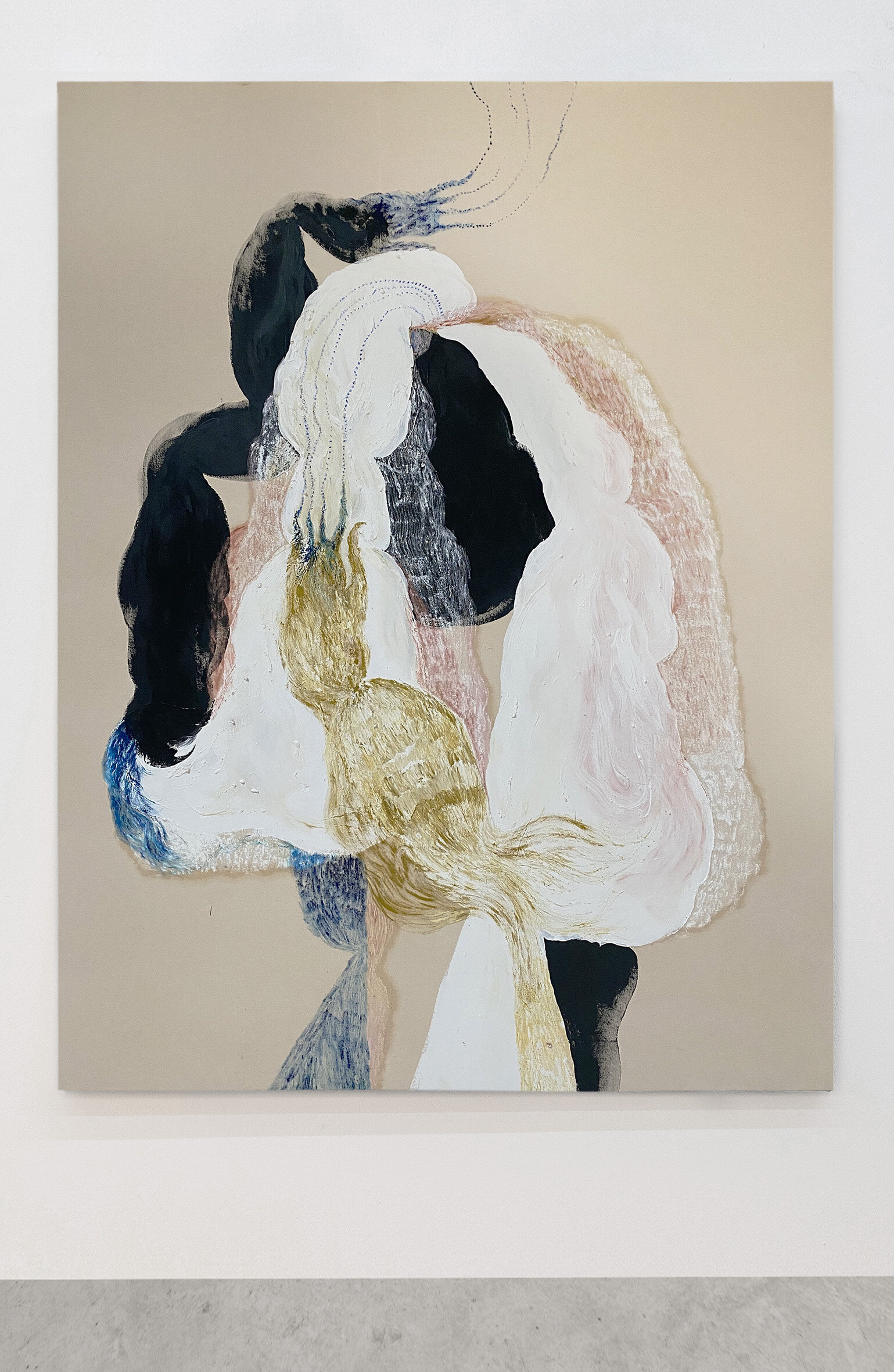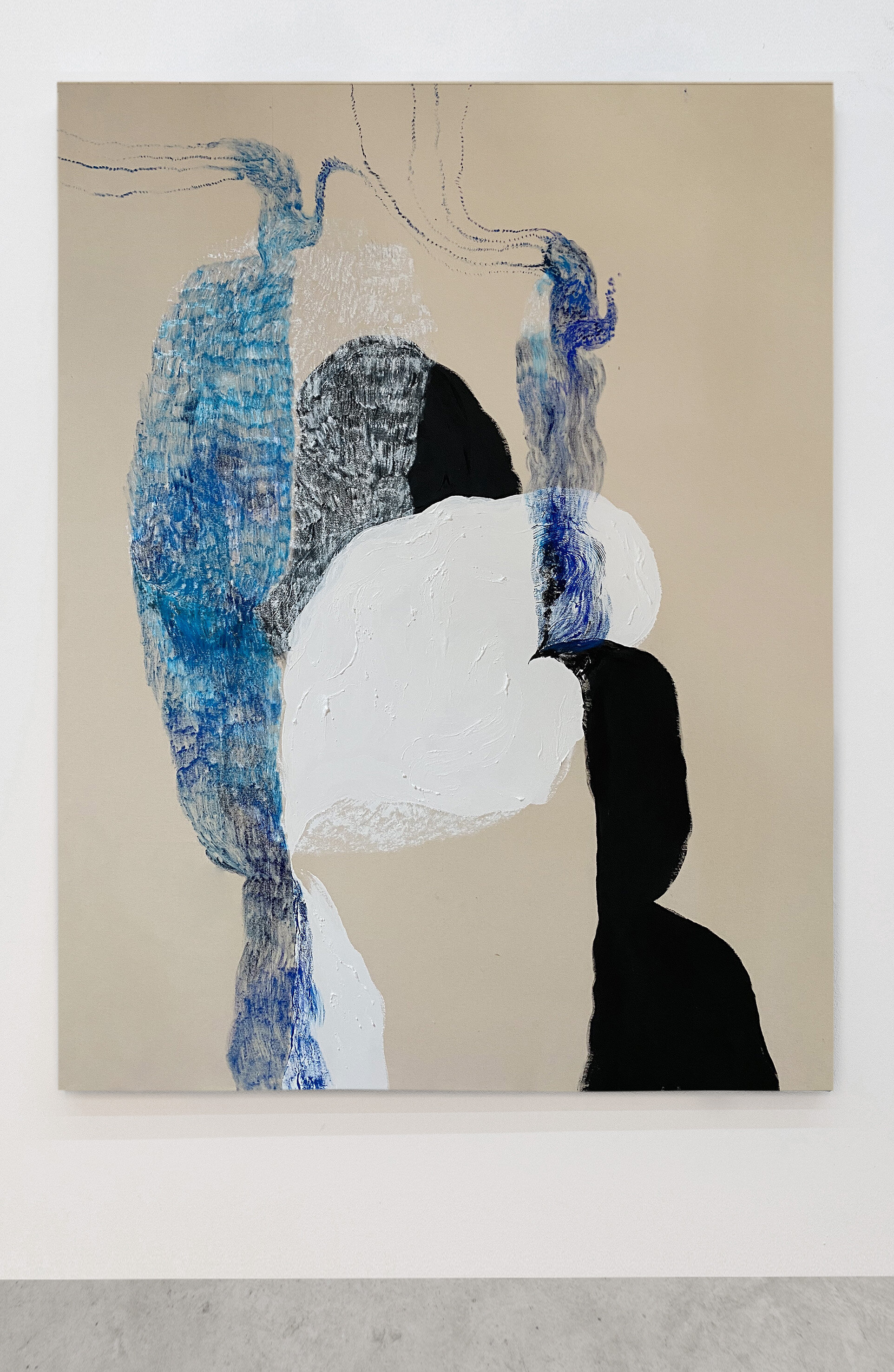ARTIST EDOUARD NARDON
Edouard by Clement Pascal
I was born in the South of France, dropped out of school very young to live tumultuous teenage years full of thrilling adventures, and moved to New York in 2008. My studio is located in Bedford Stuyvesant, Brooklyn. My artistic practice mainly focuses on painting and sculpture.
Your greatest inspirations or influences?
My work often references Alchemy and Hermeticism, imagery from the Tarot de Marseille, romanticism, prison culture and poetry.
Tell us a bit about your creative process?
Although they can be interpreted as abstractions, my paintings are always based on precise figurative compositions. I start with a drawing of a specific subject and degrade it with a personal logic of alteration. Through this process, the abstraction begins to subsume the subject’s literal meaning and reduces the figure to its symbolic dimension. I use these initial structures as the foundations to support a second stage of intuitive mark-making, in which I compound additional layers to the figures through instinctive gesture, quite similar to André Breton’s concept of automatic writing. By distancing myself from the initial representational intention, a loss of control adds a level of codification tied to an unconscious impulse.
I like the idea of becoming a vessel at this point, a simple vehicle. Eventually, several layers within the same piece interrelate and connect to each other in a fragile balance. I paint on raw canvas, which means that I can’t erase any lines or regions. This creates a certain tension in the process. Time can pass. I usually take a step back between layers, sometimes days or weeks.
Regardless of the extent of abstraction of a given work, the figurative elements of the initial subject remain, however degraded or transfigured.
How has this year changed your creativity?
Last summer the US shut down their borders and embassies while I was traveling to Europe, and I suddenly got stuck overseas. I basically became homeless, with no idea of when I would be allowed to return to NY; it ended up not being until 11 months later. This unexpected and challenging situation forced me to consider new perspectives in order get my life back, while still maintaining my artistic practice. It changed my approach to comfort and material possessions and made me question the role played by geographic contexts in defining one's true identity.
Who do you consider to be an icon of our time?
Radric Delantic Davis.
Do you think the art world needs to change?
More attention to the work, less to the appearances.
What does wellbeing mean to you?
I think everything is temporary, life is just a succession of cycles. Therefore, I consider wellbeing as an ephemeral feeling that alternates with other emotional states. By extension, I guess my conception of a state of absolute wellbeing might just be the ability to embrace the fugacious nature of life.
I like Jodorowsky’s description of the 10th Major Arcana in “The Way of Tarot” to illustrate that idea:
“The Wheel of Fortune invites reflection upon inevitable alternations of ascents and falls, of prosperity and austerity, of joy and sorrow. It orients us toward change, whether positive or negative, and acceptance of the constant transformation of reality.”






